U.S.-origin bacterial septicemia can result in significant mortality
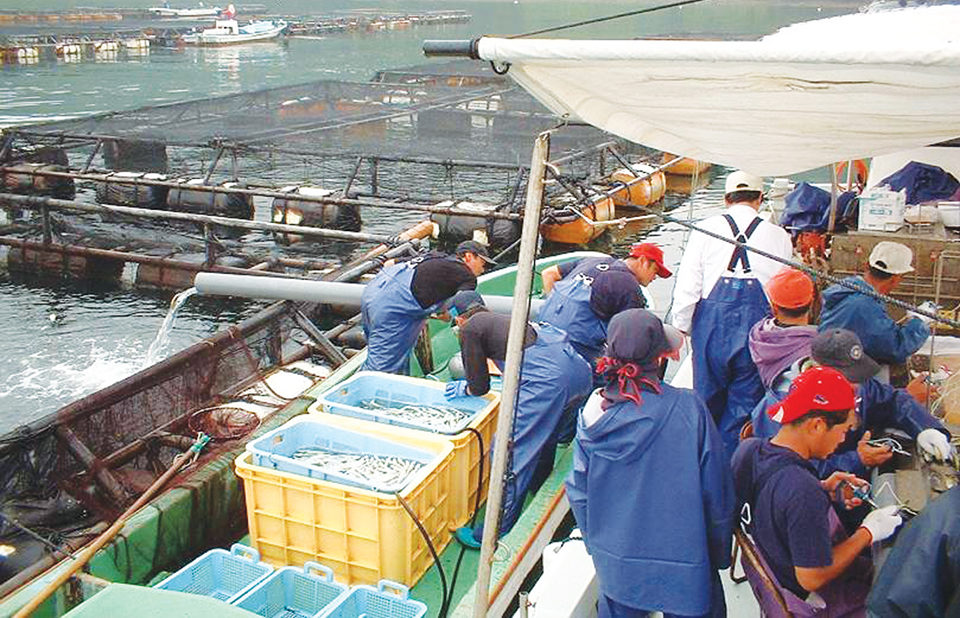
Pseudotuberculosis, or pasteurellosis, caused by the halophilic bacterium (Photobacterium damselae) subspecies piscicida (P. piscicida) is a bacterial septicemia that can result in significant mortality and economic loss in a variety of cultured fish. First identified in wild fish populations in the United States in 1963, it has since been recognized as a major pathogen of farmed fish in various European countries and Japan. In addition, the authors’ recent epidemiological investigations found P. piscicida in farmed cobia in Taiwan and in a variety of cultured species in China, including fingerling and larger seabream, snapper and pompano.
Although efficacious antibiotics to combat P. piscicida infection are available, alternative health management systems can help ensure the long-term sustainability of the affected species’ industries.
Yellowtail, amberjack vaccine
Pasteurellosis occurs in yellowtail and amberjack in the Japanese fish culture industry. The disease, which occurs predominantly during the summer months, is most prevalent in fish of more than 10 grams. Mortality attributable to P. piscicida can range 5 to 50 percent. Despite the significant economic importance of this pathogen to the Japanese fish industry, there were no effective vaccines against it in Japan.
The authors therefore developed a safe and efficacious combination vaccine against P. piscicida infection and (Lactococcus garvieae) infection for use in yellowtail and amberjack culture. Field trials of the vaccine held between 2002 and 2005 were followed by further laboratory studies. Regulatory approval was obtained in Japan in December 2007, and the vaccine will be available this summer.
Challenges, results
The onset of immunity against P. piscicida infection in 31-gram yellowtails reared at 22 ± 2 degrees-C was investigated by weekly experimental challenge after the individual fish received a single intraperitoneal vaccination with the prototype oil-based bivalent vaccine.
Although minor effects were seen after the exposure at one week, maximum protection against pasteurellosis appeared three weeks after vaccination (Fig. 1), when vaccination reduced mortality from 100 percent in control fish to 30 percent in vaccinated fish.
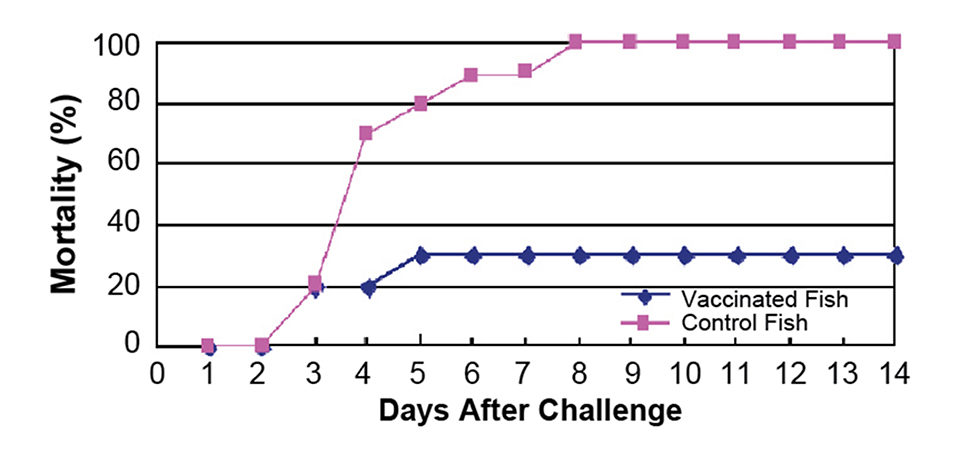
Twelve weeks after vaccination, P. piscicida mortality in the control fish was 100 percent, while no mortality was observed in the vaccinated population. Protection against L. garvieae was also acquired one week after vaccination (Fig. 2).
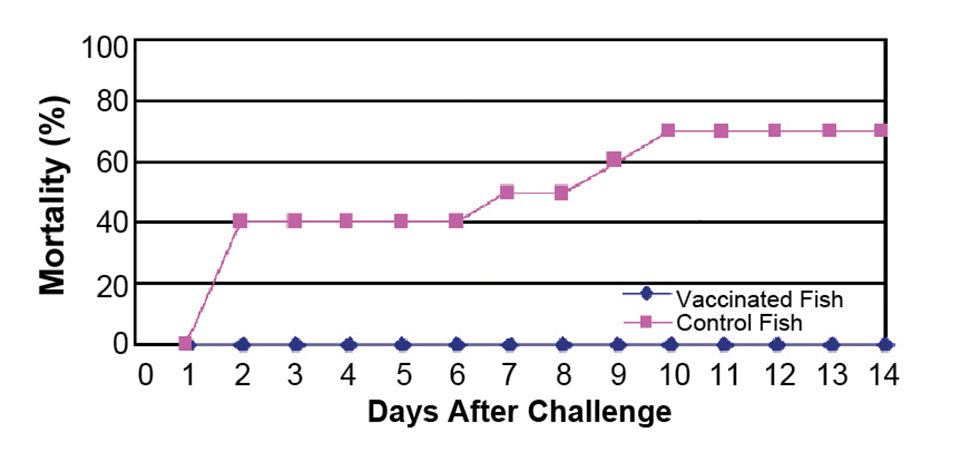
Similar results were obtained in amberjack. Trials at three farms in Japan confirmed the safety and efficacy of the vaccine in yellowtails and amberjack in the field. Results from two farms are shown in Figs. 3 and 4.
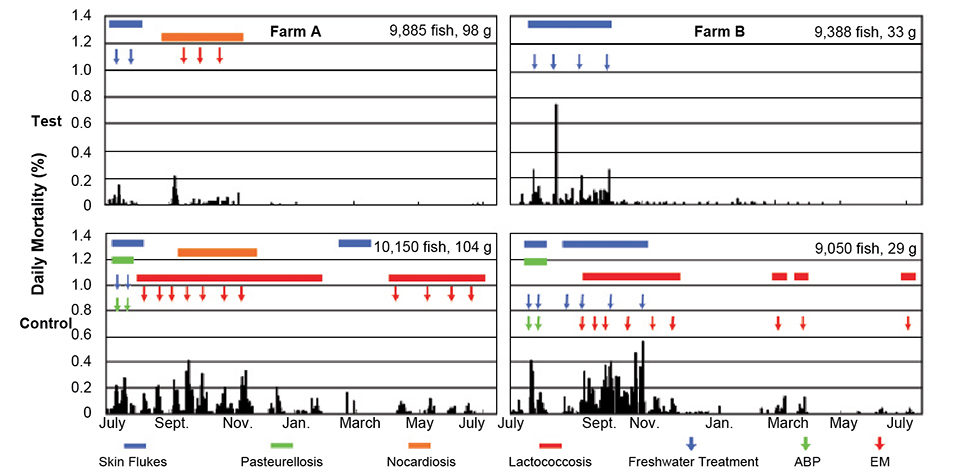

(Editor’s Note: This article was originally published in the May/June 2008 print edition of the Global Aquaculture Advocate.)
Now that you've reached the end of the article ...
… please consider supporting GSA’s mission to advance responsible seafood practices through education, advocacy and third-party assurances. The Advocate aims to document the evolution of responsible seafood practices and share the expansive knowledge of our vast network of contributors.
By becoming a Global Seafood Alliance member, you’re ensuring that all of the pre-competitive work we do through member benefits, resources and events can continue. Individual membership costs just $50 a year.
Not a GSA member? Join us.
Authors
-
Y. Wada, M.S.
Intervet K.K.
1103 Fukaya, Kasumigaura-shi
Ibaraki 300-0134 Japan[109,111,99,46,116,101,118,114,101,116,110,105,64,97,100,97,119,46,117,98,111,110,105,104,115,111,121]
-
T. Oyamatsu, Ph.D.
Intervet K.K.
1103 Fukaya, Kasumigaura-shi
Ibaraki 300-0134 Japan -
J. Ng
Intervet K.K.
1103 Fukaya, Kasumigaura-shi
Ibaraki 300-0134 Japan -
L. Labrie, DVM
Intervet K.K.
1103 Fukaya, Kasumigaura-shi
Ibaraki 300-0134 Japan -
C. Komar, DVM
Intervet K.K.
1103 Fukaya, Kasumigaura-shi
Ibaraki 300-0134 Japan -
Z. Tan, DVM, Ph.D.
Intervet K.K.
1103 Fukaya, Kasumigaura-shi
Ibaraki 300-0134 Japan -
L. Grisez, Ph.D.
Intervet K.K.
1103 Fukaya, Kasumigaura-shi
Ibaraki 300-0134 Japan -
B. Sheehan, Ph.D.
Intervet K.K.
1103 Fukaya, Kasumigaura-shi
Ibaraki 300-0134 Japan -
A. Taneno, DVM
Intervet K.K.
1103 Fukaya, Kasumigaura-shi
Ibaraki 300-0134 Japan
Tagged With
Related Posts
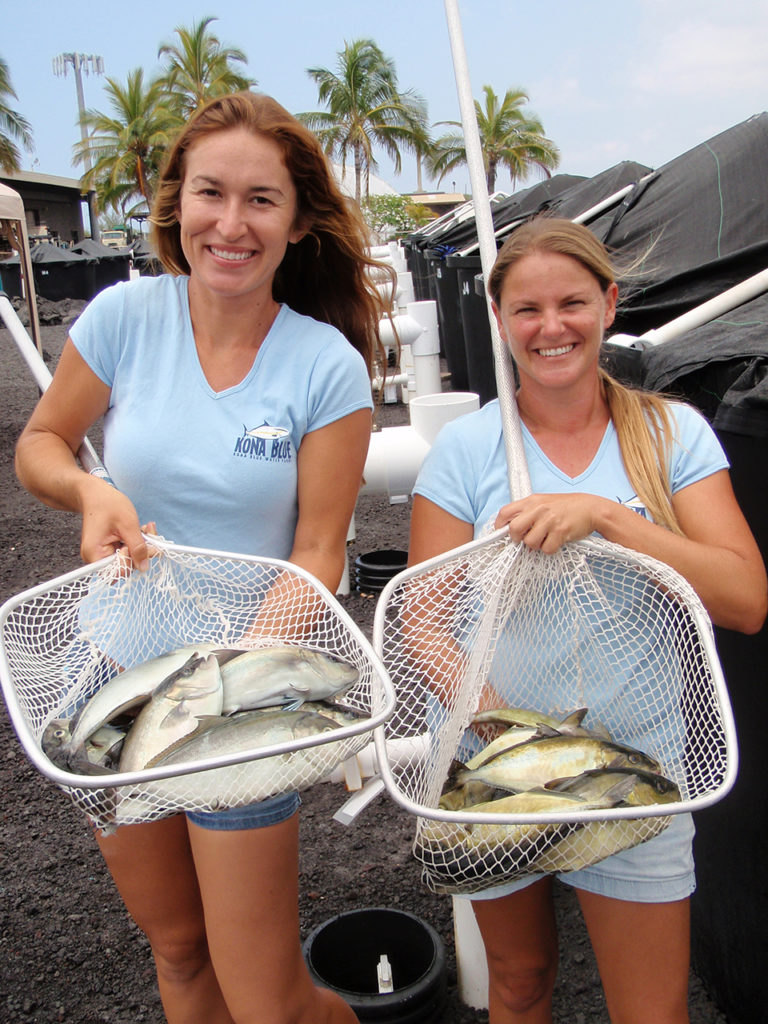
Health & Welfare
Novel soy proteins, oils replace fishmeal to achieve FIFO under 1:1 in amberjack
In a nutrition trial, longfin amberjack received two diets composed of 40 percent soy protein concentrate and 10 percent fishmeal, and a control diet with 20 percent fishmeal.
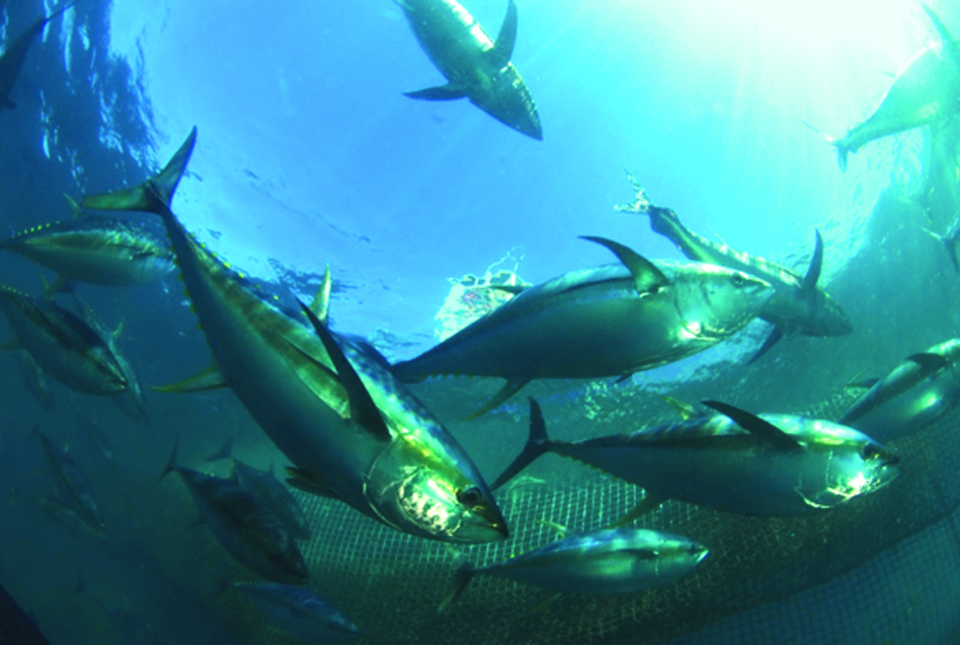
Health & Welfare
Marine fish culture in Mexico
Mexico has a wide diversity of areas and water temperatures that are suitable for a variety of aquaculture species.
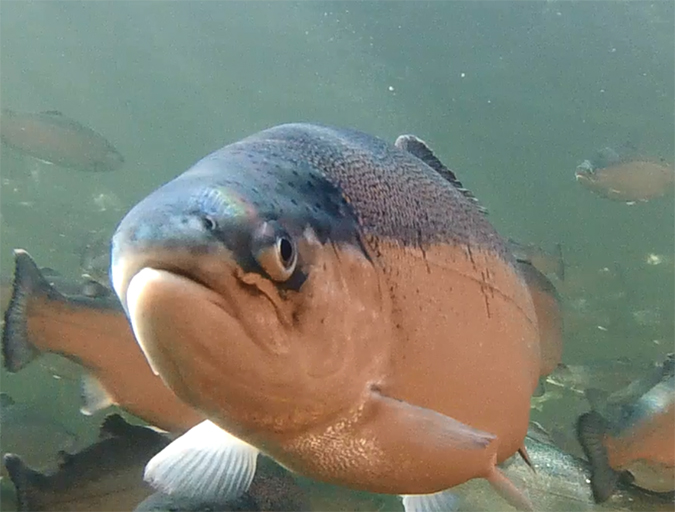
Innovation & Investment
Mucosal mapping architect wins aquaculture innovation award
Quantidoc AS in Norway is the commercialization of Prof. Karin Pittman’s years of fish health research. Pittman, winner of this year’s Global Aquaculture Innovation and Leadership Award, utilizes stereology to measure and better understand mucous on gill, gut and skin tissues – the first line of defense for fish.
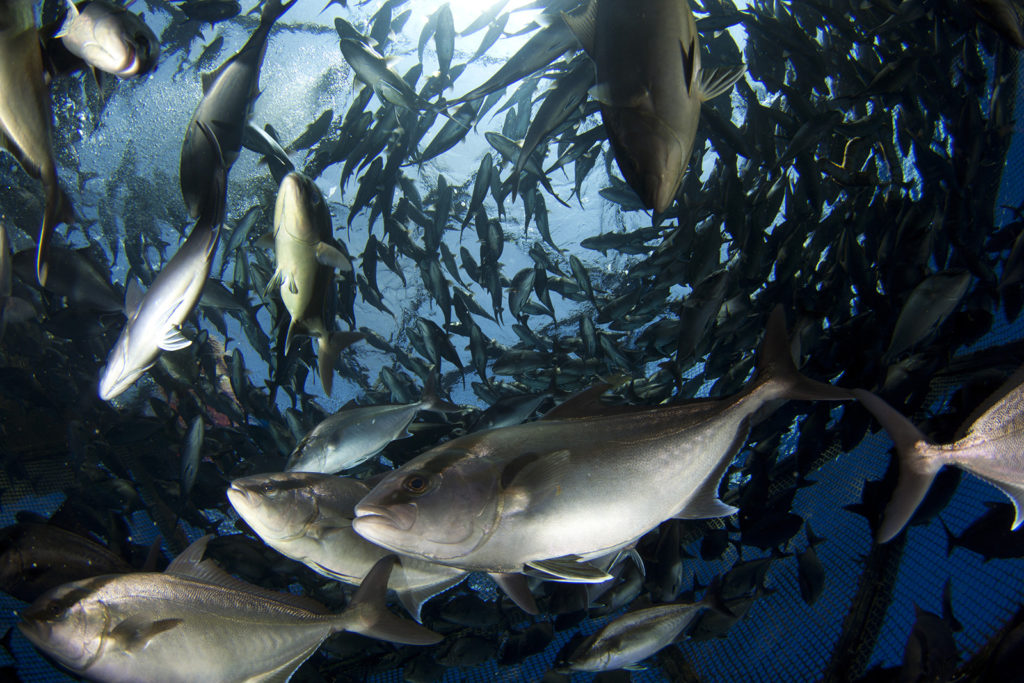
Innovation & Investment
Offshore aquaculture inches closer to reality in the Gulf of Mexico
New U.S. policies for offshore aquaculture permitting will soon be put to the test in the Gulf of Mexico. With imported products dominating the U.S. seafood landscape, some argue the time has come for the industry to take a leap forward.



